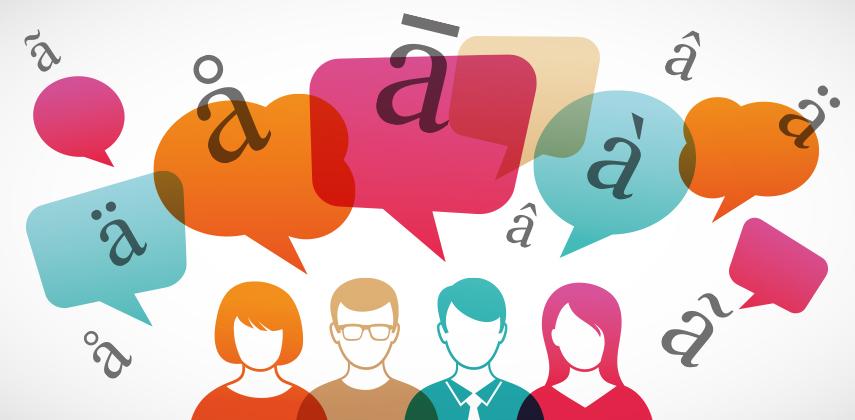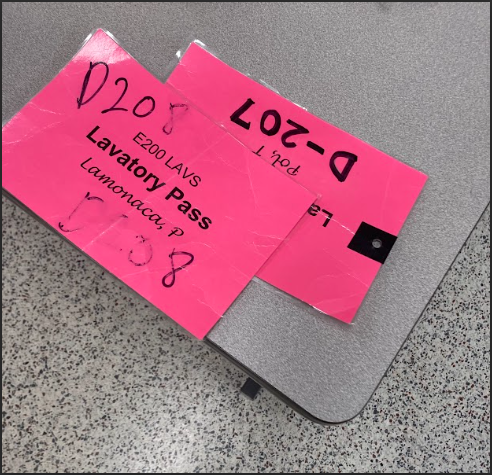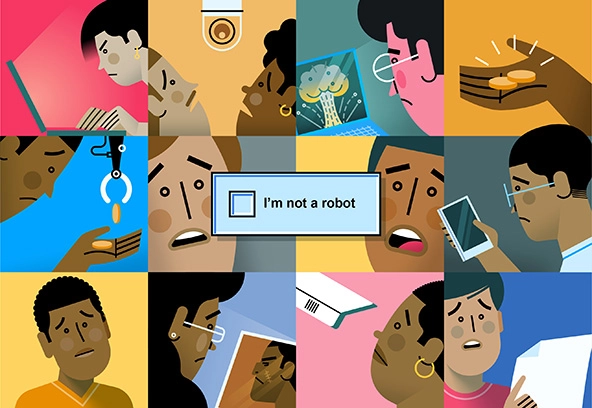Hurtful, Not Helpful: The Case Against Correcting Accents
Photo Source: https://www.mimicmethod.com/best-accent-learn/
“Actually, it’s pronounced —”
“Actually, it’s pronounced —”
This common correction is one that has been heard by countless American immigrants, for whom English is not a native language. It might be heard from a stranger at the grocery store, spoken casually by a colleague, or even mentioned by a non-native speaker’s own children. For many, accent corrections like this are inevitable, and are even an expected part of conversing. The topic is a tricky one: are corrections to pronunciation helpful or hurtful, and at what point does correcting someone’s accent become a discriminatory practice?
Accentism, a relatively modern term, describes discriminatory or unfair behavior centred on someone’s accent or language use. Essentially, when people discriminate against others because they speak differently (or speak accented English), this is known as accentism. The complex and wide discussion on accentism is just beginning, with researchers like Dr. Vijay Ramjattan doing extensive work on the issue. Still, the question here is if innocently correcting someone and their pronunciation (without malice intended) falls under that form of discrimination.
Some can argue that correcting accented pronunciation is equivalent to correcting a mistaken pronunciation from a native English speaker. For example, people often say things like, “It’s pronounced espresso, not expresso.” This is a commonplace behavior, and is never really considered rude or incorrect. Shouldn’t correcting accented pronunciation be the same?
The problem with that notion is that people with accents cannot help saying things in a certain way. Their stress on words will be different, their sounds will be different, and thus, their pronunciation will be inherently different. Correcting someone who speaks English with an accent is similar to expressing that there is only one “right” way to speak a language.
Cherokee language teacher Ms. Cattanea articulates this concept by saying, “Correcting someone’s accent in a social situation can make them feel uncomfortable or send the message that their way of speaking isn’t good enough.”
This shows that there is an “unspoken prejudice” when someone corrects an accent. To clarify, when a person corrects a native English speaker for mispronunciation, they are correcting what they say. On the other hand, when a person corrects an accented pronunciation, they are correcting how they speak. It invalidates and demeans the speech of the person being corrected, as well as places focus on how they are speaking, which takes focus away from what they are actually saying. Additionally, while a native English speaker can usually easily change their pronunciation, it may be unnatural and difficult for someone who speaks with an accent to do so.
Moving on from the conversation of accentism, it is important to also acknowledge basic human courtesy. Usually, it is impolite for people to jump in uninvited and offer criticism in conversation with others. Why should the rule be any different for correcting a nonnative English speaker? Common reasoning is that the corrector simply wants the best for the person they are correcting, and wishes to help them before they look foolish for saying something “wrong.”
However, if one believes that having an accented pronunciation is somehow embarrassing or makes a speaker look bad, that issue likely lies more with internalized prejudice than it does with anything else (since accents are often a source of cultural pride and not embarrassment). In essence, having an accent is not embarrassing unless the people around a nonnative English speaker make them feel embarrassed.
Ms. Cattanea expresses, “Asking ourselves how we respond to different accents is a good way to do a personal inventory of potential prejudices that we may hold.”
It should also be noted that having an accent is not at all a measure of knowing the English language. Someone with an accent may know English as well as, or even better than, the next person. Accents stick around whether a person has been speaking English for many years or not.
By correcting a nonnative speaker with an accent, the unspoken assumption is that they don’t know a language as well. Not only is this often untrue, but it can be very insulting to a well-versed and fluent English speaker, who may have a variety of complex words in their linguistic arsenal, but still speaks with their natural accent.
Having taken all this into account, it is clear that the guidelines by which society views accents and correcting pronunciation need significant alteration. The question is how. Ms. Cattanea offers insight on how she tackles the issue in her own classroom:
“In the classroom, teaching students to use native-like sounds is important but overcorrecting grammar or focusing too much on accent can be demotivating. We want to work towards fluency and pronunciation in a language, but accent will always vary from person to person. The focus should be on our ability to communicate information, never to disguise who we are and where we are from. Accents show a difference in the way we speak a language, not a deficit,” she explains.
All in all, it is clear that correcting someone’s accent is perhaps more of a microaggression than it is a helpful note. People with accents can control how they speak as little as english speakers with recognized “american” accents can.
At the end of the day, the key thing to remember is emphasis. If someone corrects their friend for saying “expresso” instead of “espresso” they place all their emphasis on the word itself. However, when that same correction is applied instead to an accent, the emphasis is now on the person and their way of speaking, which doesn’t need correcting. In fact, accents are actually beautiful, and show the diversity within society. There’s nothing wrong with acknowledging them:
“It’s not negative to acknowledge someone’s accent. A person’s accent can be a great source of pride, identifying their heritage and upbringing,” Ms. Cattanea says.
With all this in mind, perhaps it’s better to switch out “Actually, it’s pronounced—” to a positive “Wow, I really love your accent.”












